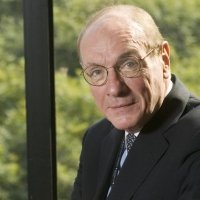Implications of the Oct. 31 Brazilian Presidential Elections
Summary of a Brazil Institute seminar with Riordan Roett, Professor, SAIS, Johns Hopkins University; Christopher Garman, Director, Eurasia Group; Clifford Young, Executive Director, IPSOS Public Affairs Brazil; João Augusto de Castro Neves, Founding Partner and Political Analyst, CAC Consultoria; Paulo Sotero, Director, Brazil Institute, Woodrow Wilson Center
Now that Dilma Rousseff was elected Brazil's first woman leader to succeed President Luiz Inácio Lula da Silva, beating her opponent José Serra by 12 percent, what can the country and the world expect from her administration? Will she be able to tackle the fundamental issues that are holding Brazil back from achieving its full potential? Will Brazil be able to project itself internationally based on its on strengths as a country rather than on the personality of the charismatic Lula? In the aftermath of the Brazilian 2010 elections, five experts gathered at the Wilson Center to reflect on the presidential race results and its implication for Brazil at home and abroad.
Rousseff's acceptance speech offered some hints on what her government will look like, highlighting her declared commitment to human rights, according to Brazil Institute Director Paulo Sotero. "Her strong statement in the defense of freedom of expression in Brazil reflects not only into her convictions but sends also a conciliatory signal to the opposition and to the media after a bruising electoral campaign that featured some ferocious and counterproductive attacks on the media by President Luiz Inácio Lula da Silva," Sotero said. In the evening of her Oct. 31 victory, the constant presence on Rousseff's side of Antonio Palocci, her campaign adviser and Lula's former minister of finance known for his pro-market orientation, may also indicate a commitment to moderation and pragmatism, which were reinforced by statements she made in her victory speech highlighting fiscal discipline and the need for a tax reform. Rousseff also reiterated her priority to combat poverty and improve education. "As a very good manager, she knows that Brazil's ascension in the world will not last if the country fails to confront the issue of its modest international competitiveness, which in turn depends on two factors: a faster improvement of its dismal public education system and the creation of fiscal space to allow lower domestic interest rates and increase the state's capacity to invest in infrastructure," Sotero added.
Clifford Young, executive director at IPSOS Public Affairs Brazil, examined the election's meaning and the trends that will help define public discourse looking forward in Brazil. One aspect is the crystallization of the Brazilian electorate along two blocks: the dominant PT (Workers' Party), comprising mostly poor Brazilians, and the PSDB (the Social Democracy Party), from higher social classes, predominating in the southeast. "In many countries, where we don't have crystallized electorates, elections tend to fluctuate a lot," Young observed, arguing that looking forward, any opposition party will have to be clear of its differentials because the Brazilian people know what to expect of the government party, the PT. He also stressed that it is very hard for an opposition candidate to win an election when the economy is doing well and people are optimistic.
In this scenario, which favored the government's candidate, there was a consensus that Rousseff represented continuity of Lula's administration, argued Christopher Garman, director at the Eurasia Group. However, Garman described two different camps on what to expect from Rousseff: The pessimists believe she is more to the left than Lula and will sustain fiscal expansion policies. The optimists expect that the macroeconomic imbalances that occurred in Lula's second mandate will be eventually corrected. Like Sotero, Garman said he sees the involvement of Palocci, as well as other moderates such as José Eduardo Cardoso and José Eduardo Dutra, as an indication of a more pragmatic cabinet. Moreover, Luciano Coutinho, current BNDES president, has been hinted as a potential minister of finances, Garman observed. "All of them believe tax reform is an issue that can be tackled and that you have to roll back the pace of current expenditure," he said, warning that Rousseff will encounter resistance in accomplishing these tasks because the economy is doing so well.
João Augusto de Castro Neves, founding partner and political analyst for CAC Consultoria, looked at the future of the opposition during Rousseff's government. He noted that she is the first president-elect who was not favored by the media, which uncovered corruption scandals tied to her staff and questioned her track record since she never ran for public office before. Although Lula's popularity is at about 80 percent, the number of votes garnered by Rousseff did not entirely reflect that recognition and are in fact a decline from Lula's numbers in previous elections. While the opposition lost seats in the Congress, where Rousseff will enjoy a comfortable majority, managing her diverse coalition might be a potential challenge. "Even if Rousseff was more left-wing than Lula, PMDB [Party of the Brazilian Democratic Movement, a major party in her coalition] will serve as an anchor to her party," he argued, "She won't have that much freedom." As for Lula's role in Rousseff`s government, Castro Neves said it is very unlikely that Lula will govern by proxy because Brazil's institutions are solid. In fact, he expects Lula to distance himself from her government in the case of an economic crisis.
Agreeing with Castro Neves, Professor Riordan Roett of SAIS at Johns Hopkins University restated that Rousseff will face a difficult challenge in dealing with her 10-party coalition. Main issues that must come to the forefront, according to Roett, are inefficient infrastructure and education, which impair productivity and competitiveness. In terms of infrastructure, the question is whether Rousseff will meet the demands of the 2014 FIFA World Cup and the 2016 Olympics. This means spending the events' money reasonably well in physical infrastructure, which will ultimately help productivity. But as, Roett observed, these things move slowly in developing countries and too many contracts are given out without final resolutions. Contrary to Lula, who has been an enthusiast of the BRICs, Roett said he doesn't think Rousseff shares the same international aspiration. "This means you will see a shift back to the Itamaraty, the foreign ministry, in terms of leadership on the basic foreign policy questions," Roett said, pointing out that the internal issues are likely to take center stage, especially fiscal policy and high interest rates.
By Renata Johnson
Paulo Sotero, Brazil Institute
Speakers



Senior Director, Global Strategic Risks at ExxonMobil

Director of Western Hemisphere Studies, Johns Hopkins University, School of Advanced International Studies

Hosted By

Brazil Institute
The Brazil Institute—the only country-specific policy institution focused on Brazil in Washington—aims to deepen understanding of Brazil’s complex landscape and strengthen relations between Brazilian and US institutions across all sectors. Read more
